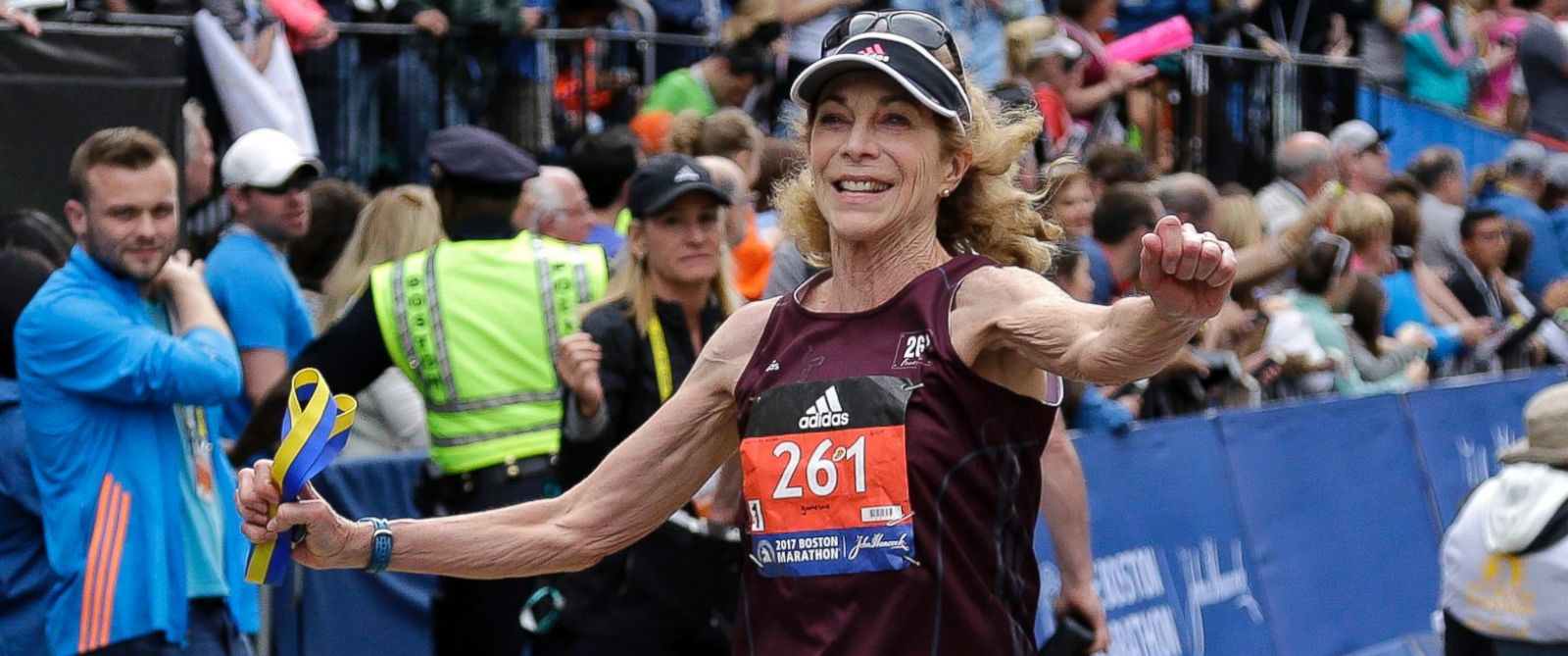Twenty years ago, women didn’t run the Boston Marathon and 20-year-old journalism students certainly didn’t either. And yet, back in 1967, Kathrine Switzer did just that and made history in the process.
And just yesterday, 50 years later, she did it again when she crossed the finish line wearing the same bib number (the same one the Boston Marathon is retiring in her honor) an official tried to rip off her clothing during the 1967 race. We’ve come a long way, baby. This was Switzer’s ninth time running the Boston race and even though the 70-year-old walked through water stations and stopped for pictures and interviews, she still finished under the qualifying time of 4:44:31.
The 1967 race turned Switzer into a hero and launched her career as an advocate for women in sports (at the time women rarely participated in professional or competitive sports). But she didn’t intend to become a hero, after all, Roberta Bingay Gibb had completed the Boston Marathon in 1966 (but without a bib). However, Switzer signed up with her initials, K.V., so she had a bib AND a target on her back. (There were no official written rules saying only men could enter the race and there wasn’t a spot on the entry form to select gender.)
From the article:
“Instinctively I jerked my head around quickly and looked square into the most vicious face I’d ever seen. A big man, a huge man, with bared teeth was set to pounce, and before I could react he grabbed my shoulder and flung me back, screaming, ‘Get the hell out of my race and give me those numbers!'” she wrote in her memoir.
The man was race director Jock Semple. Press photographers captured Semple’s contorted face as he grabbed at Switzer’s numbers while her boyfriend pulled Semple off her.”She ran from the scene bewildered. She ambled on for a few miles before her anger transformed into energy and she took off for finish line. Dropping out was not an option, she said on her website.”
She knew she had to finish the race to be taken seriously personally AND for all womankind. But, while she finished the race in four hours and 20 minutes, she was later disqualified and expelled from the Amateur Athletic Union.
She would go on to campaign to allow women to run the Boston Marathon (which happened in 1972) and in 1974 she won the New York City Marathon. She also created the Avon International Running Circuit of women’s only races in 27 countries. Switzer also became an author and TV commentator for the Olympics, World and National championships. Lastly, as her bib number 261 had become a type of rally cry among female runners so she formed 261 Fearless, a nonprofit running club for women that has groups across the country.
Well done Ms. Switzer. Thank you for paving the way for us and being such an amazing role model in the process.
Source: CNN












